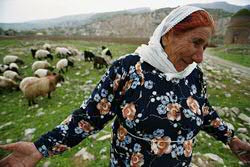Land Acquisition, Resettlement and Social Sustainability
This course is full and closed for registrations. To be included in the waiting list, please contact Suelen Haidar (shaidar communityinsights.eu)

This two-week practical training course, which is delivered in English, promotes understanding about and develops skills in managing the social risks and impacts associated with the development of public and private investment projects (e.g. mines, dams, highways, industry parks, electricity transmission corridors, agricultural developments, etc), and particularly issues related to land acquisition and resettlement. The course is a designated summer/winter school of the University of Groningen, is managed by Community Insights Group, and is taught in conjunction with Intersocial Consulting and Frederic Giovannetti. There have been over 20 previous offerings of this course, all of which have been highly regarded by course participants, with each course being evaluated with a mean score of around 9.0 (out of 10).
Rationale for the course
Research into the displacement of people required for large projects generally shows that they are made worse off unless the process is properly planned and managed. With an increasing number of international standards (e.g. World Bank environmental and social standards, IFC Performance Standards, Equator Principles, and the United Nations Guiding Principles on Business and Human Rights), there are established international standards and good practices that are expected to be met in the development of investment projects. However, the varying cultural and developmental contexts of different countries present significant challenges to fully implementing these standards. This training course is based on the international standards and good practice, as well as on lessons learned from practical case studies on the ground. The course is delivered by some of the world’s leading social assessment and resettlement practitioners. It seeks to provide capacity building in the practice of managing the social issues of investment projects, focusing especially on land acquisition and resettlement. It is targeted to an international audience of current and intending social performance and resettlement practitioners, and people involved in the governance of projects from public and private institutions or from international financial institutions. It is also open to advanced students interested in the practical management of social issues associated with development.
Upon successful completion of the programme, the Summer School offers a Certificate of Attendance that mentions the workload of 140 hours (28 hours corresponds to 1 ECTS). Students can apply for recognition of these credits to the relevant authorities in their home institutions, therefore the final decision on awarding credits is at the discretion of their home institutions. We will be happy to provide any necessary information that might be requested in addition to the certificate of attendance.
It is possible to obtain a microcredential for this course.
Microcredentials are digital certificates that allow learners to demonstrate the knowledge and skills they have acquired after completing a unit of education, smaller than a full degree programme. The unit of education for which a microcredential is awarded meets the same quality standards as an accredited degree programme.
Practical information
|
Dates & location
|
16 - 27 June 2025, Boğaziçi University, Istanbul, Türkiye |
|
Level
|
Advanced MA, PhD, Postdoc, Practitioners
|
|
Fee
|
€ 3.750 for private sector practitioners and government representatives from OECD countries.
€ 2.750 discount rate for World Bank staff, NGO participants and government representatives from non-OECD countries. |
|
Academic coordinator
|
Prof. Frank Vanclay, Faculty of Spatial Sciences
|
|
Contact
|
Suelen Haidar, course assistant: shaidar communityinsights.eu
|
Participants need to arrange their own accommodation. For a list of recommended hotels, kindly contact shaidar communityinsights.eu
Target group
This summer school is an applied training course intended for practitioners or applied social researchers from public and private institutions interested in the practical aspects of social assessment, project-induced displacement and resettlement. Applicants are expected to be either:
(a) actually involved in development projects as a practitioner or in the governance of projects; OR
(b) a researcher or academic at Masters level, PhD, postdoc or even academic teaching staff having a clear reason for wanting to do this practical course.
Full professional fluency in English is required.
Programme
Programme (preliminary)
A detailed programme will be provided to participants prior to the course. In general, the course will cover all aspects of land acquisition involving resettlement, including:
- Welcome, introductions, overview of the course as a whole;
- General introduction to social issues and development challenges;
- Overview of resettlement as a process;
- Basic underlying concepts such as social license to operate; business case; free, prior and informed consent; human rights; sustainable livelihoods;
- Introduction to human rights;
- Overview of the various International Standards: World Bank social safeguards, IFC Performance Standards, EBRD, IAIA guidelines, United Nations Guiding Principles for Business and Human Rights, relevant legal principles and frameworks;
- Understanding social impacts and social risks of investment projects (including sustainable livelihoods; resilience; vulnerability; ecosystem services; health impacts);
- Ways of assessing and addressing social issues and tools to use (social impact assessment, baselines, profiles);
- Stakeholder Engagement and grievance mechanisms and conflict;
- Linking livelihoods restoration to Local Employment and Local Procurement;
- Resettlement planning;
- Resettlement impacts, risk and opportunity assessment;
- Resettlement mitigation measures;
- Resettlement Review, Monitoring & Evaluation, Audits, Completion Audits.
Lecturers
In addition to the course coordinator, Prof Frank Vanclay , the course will include, among others, some of the leading social assessment and resettlement practitioners, including Eddie Smyth (Intersocial), Dr. Ana Maria Esteves and Frederic Giovannetti.
Application procedure
This course is full and closed for registrations. To be included in the waiting list, please contact Suelen Haidar (shaidar communityinsights.eu)
Partners



